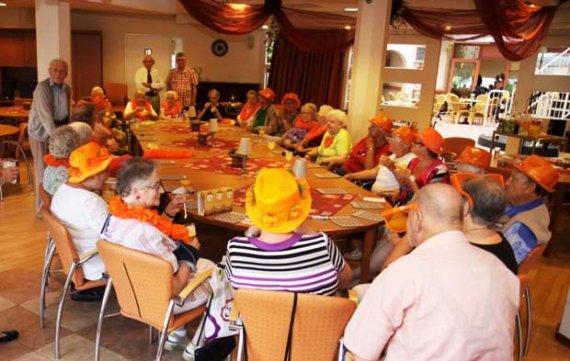The elderly run a raised risk of suffering from loneliness. For this reason, special attention is paid to this segment of the population. An active pensioner with many social contacts stays healthier, does more voluntary work and requires less health care. Many municipalities in the Netherlands have therefor launched ‘intervention projects’ to try to prevent loneliness among the elderly. But do these projects work? PhD student Rianne Honigh-De Vlaming evaluated a project in the municipality of Epe. The ‘healthy old age’project consisted of an awareness-raising campaign for the whole population and activities for high-risk groups such as elderly people with physical handicaps or those who had recently lost a partner. There were several articles in the local press about lonely old age and there were posters, folders and awareness-raising meetings.
Personal approach
But the results were disappointing, concluded Honigh two years later. The media campaign did not lead to a reduction in the amount of loneliness. The reason: ‘Old people did not relate sufficiently to the communication materials,’ says the researcher. In her view it is important to approach old people personally. A good example is a sub-project in Epe in which active seniors organized activities for less active peers. This attracted a lot of participants because it clearly met a need, says Honigh. ‘There is social loneliness, meaning that old people feel a lack of social contacts, and then there is emotional loneliness, because they miss an intimate relationship. This last group is better served by a talk group than by a bingo evening.’ Care for the elderly in Dutch municipalities has been developing at quite a pace since the government introduced a policy of decentralization a few years ago. Epe is now going to organize services for the elderly at neighbourhood level, says Honigh, who is involved in the projects on behalf of community health service the GGD. Her research came from Agora, an academic collaboration between Wageningen University and the GGD. She is due to receive her PhD on 19 April from Lisette de Groot, personal professor of Nutrition of the Elderly, and Pieter van ‘t Veer, professor of Nutrition and Epidemiology.

